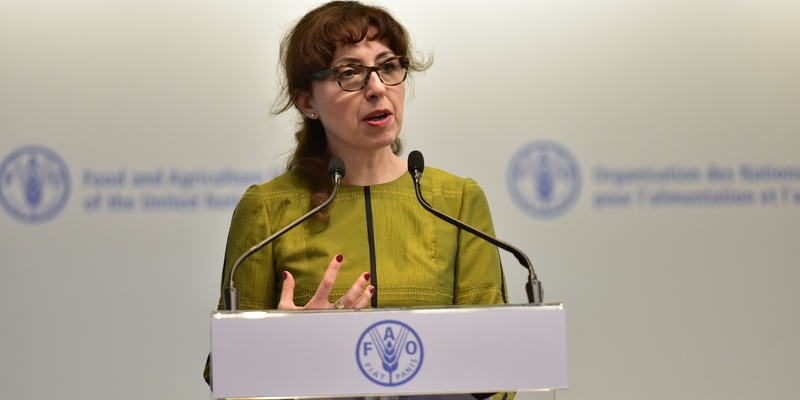A Keynote Address on Plant Health and Environmental Protection presented by the CBD Executive Secretary at the CPM-13 Opening
Posted on Tue, 17 Apr 2018, 09:35

The 13th Session of the Commission on Phytosanitary Measures (CPM-13) of the International Plant Protection Convention (IPPC) officially launched on 16 April 2018 at FAO Headquarters in Rome, Italy. Dr Cristiana Pasca Palmer, Executive Secretary of the Convention on Biological Diversity (CBD), was invited to present a keynote address the 2018 IPPC Annual Theme Plant Health and Environmental Protection. The keynote address from Dr. Pasca Palmer was warmly welcome and highly appreciated by all participants of the CPM-13.
In recent year, the IPPC and CBD Secretariats have been working towards globally harmonized measures that minimize the negative impacts pests, invasive alien species and other unwanted organisms on biodiversity, ecosystems and production environments. In 2017, the two Secretariats established a new Joint Work Programme for 2017-2019.
In her keynote address, Dr. Pasca Palmer gave some examples of support the CBD has received from the IPPC to manage the risks posed by invasive alien species and living modified organisms. The IPPC has included environmental concerns in its Pest Risk Analysis standards, and expanded the concept of plant protection to include the aquatic environment and its taxonomic groups to cover fungi and algae, she said.
The efforts of the two Conventions at the national and regional levels to implement the standards and guidance have included various training and capacity building workshops bringing together the environment sector and National Plant Protection Organizations, she stated, adding that the CBD has invited national plant protection organizations to workshops to formulate projects eligible for funding by the Global Environment Facility, a financial mechanism to assist developing countries in meeting the objectives of international environmental conventions, including the CBD.
She also underscored issues that would merit heightened collaboration between the two international bodies. Namely, climate change and related natural disasters. Noting the threat posed by invasive alien species goes beyond environments, she said, traditional agricultural production systems and traditional knowledge are also threatened by the rapid land use change, invasive alien species and complex impacts induced by climate change. We all need to remember that small-scale farmers and traditional landscapes are deeply connected with the natural environment, and they are suffering from biodiversity loss.
Looking forward, she said: I fully believe that the two Conventions will be able to celebrate the International Year of Plant Health and a post-2020 global biodiversity framework with the knowledge that we are indeed making a difference, one that will lead to a healthier planet for us and for the generations to come.



